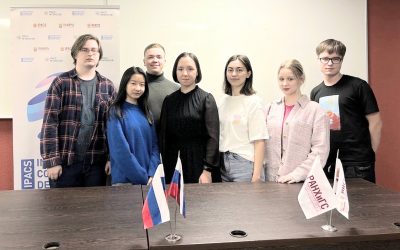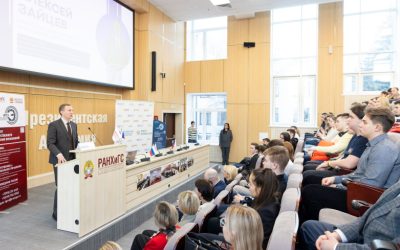Description
The educational program ‘Security of Public Administration and Corruption-control’ is targeted at those who are interested in the problems of state and municipal administration.
Focus of the program:
- security of the institutions and mechanisms of state administration and management
- personal security and safety of society
- corporate security of business entities and state companies
- other types of security stipulated by the legislation of the Russian Federation.
Our graduates are able to determine the major priorities and directions of public policy as to the organizational and legal support of different types of security and corruption control as well as to ensure the realization of a complex of special measures taking into account requirements of the legislation and the emerging experience of the law enforcement practice.
Access to relevant technologies allows our graduates to apply such not only for professional activity but first and foremost for achieving specified goals and personal professional growth.
A distinctive feature of the program along with the mastering of administrative, legal, economic and all-humanitarian knowledge and formation of the corresponding competences in the area of state and municipal administration and security is the strong academic background in terms of application of legal provisions to corruption control which considers the sharply increased volume of functions related to the law enforcement activity in terms of realization of anti-corruption measures both in the state and private sector.
The mission of the program consists in the high-quality training of professionals for the state and municipal authorities, state corporations, organizations of private and public sector capable to carry out political, organizational and legal, socio-economic, information and other security measures, including the effective use of the existing anti-corruption mechanisms.
The principal objective of the program is creating opportunities for the students to form an integrated system of key administrative competences for the procurement of different types of security stipulated by the Constitution of the Russian Federation and the legislation of the Russian Federation, first of all – the state, political, public, informational, environmental, economic, transport and energy security, corruption-control and personal security.
Entrance examination: examination in the form of a principal subject test on a hundred-point scale.
- Samples of the written tests
[/et_pb_text][/et_pb_column][/et_pb_row][/et_pb_section]
Competences and advantages
- the importance of public policy in ensuing security of the state administration and in corruption-control;
- high level of demand for professionals in the state and municipal authorities, state corporations, business structures and state institutions capable of ensuing security and corruption-control;
- during the program development, the recommendations of the leading Russian and foreign experts in the area of ensuring public administration security of public administration and anti-corruption have been taken into consideration;
- lecturers of the special disciplines are practicing specialists who are carrying out expert activity in the field of the program subject;
- quality teaching support and facilities in the teaching process, the organization of the intersession interaction for the entire period of training;
- multicultural educational environment aimed at harmonizing personal values and vital purposes with the trends existing in society, ensuring the mutual cultural enrichment of all students.
Prospects:
- extension of the circle of contacts, active role in the community of students, alumni and lecturers;
- continuation of training in postgraduate studies after the completion of a master’s degree program, the choice of specialization;
- employment and career development, the change of the area of professional activity;
- teaching activity, expert and scientific activity.
Selection criteria: the program is of a distinct practical nature; the informal approach to contents and the organization of educational process has been implemented.
Types of professional activity of the program graduate:
- organizational and administrative activities
- administrative and technological activities
- consultative and information analysis activities
- project activities
- scientific research and pedagogical activities
In his professional activity a graduate of the program will be able:
- to determine the principal directions of the public policy in the organizational and legal support of the national security and corruption control;
- to organize effective performance of state authorities, municipal authorities and organizations in the area of safety and security, corruption control and their interaction with the institutions of civil society;
- to perform the functions of the state and municipal authorities for the prevention of corruption and other offenses, to ensure the observance by the municipal and local officers of the restrictions, prohibitions and duties established for corruption control and realization of the norms of office ethics;
- to assess the corruption risks, to carry out anti-corruption expertise of legal acts and bills, to shape the anti-corruption worldview in society;
- to prevent, reveal and regulate the conflict of interests in public service, to carry out interaction with competent authorities in terms of subjecting a state officer to legal liability;
- to use the technologies and instruments of control and supervising activity to ensure the security of state administration, counteraction to corruption and other breaches of law;
- to provide methodological support in the area of state administration security and anti-corruption activity;
- to develop and organize the systems of strategic, operative and current control;
- to apply modern methods of the management of operations in various areas of activities;
- to carry out the interdepartmental interaction and joint activity with the state authorities of foreign states, the universal and regional international organizations.







